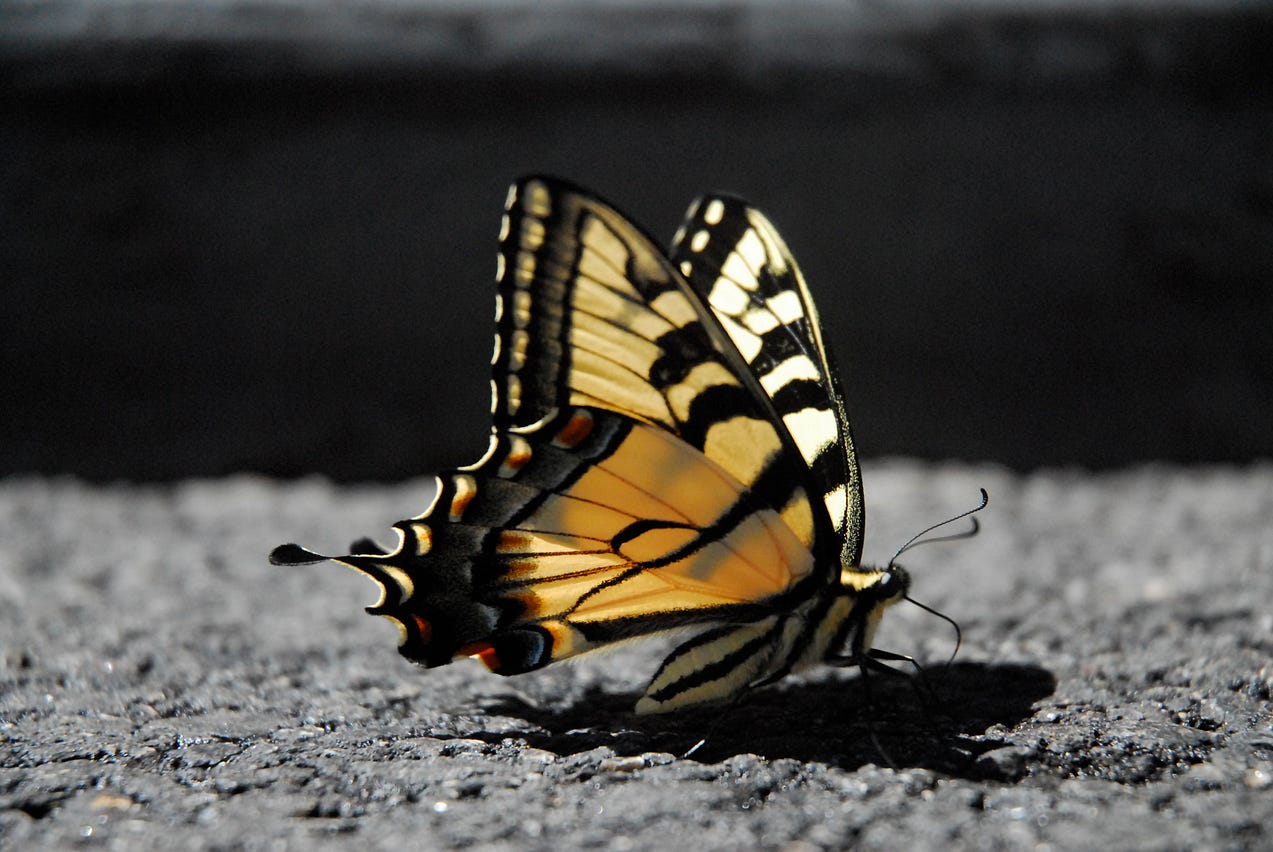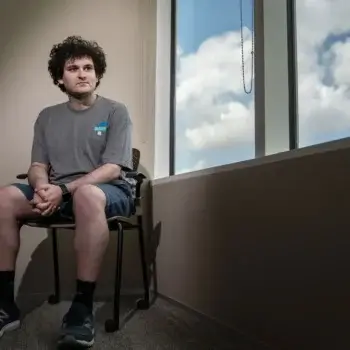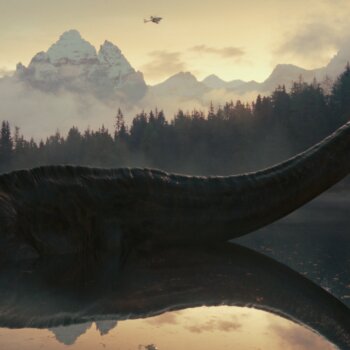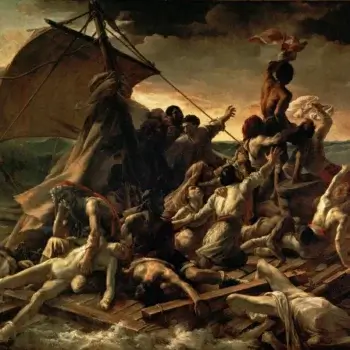Without struggle, there is no gain, or transformation. Without struggle, our actions cannot coalesce, to harness the future. Without struggle, life is bland, and rudderless. Without struggle, we remain unprepared to meet the day’s — or life’s — challenges, and whatever magic we may have inside of us, it remains bottled up, untapped.
Struggle is central to our life force, and beauty. Without it, the world is a dull gray.
And yet: most of us are given to naturally avoiding struggle; or worse, spending our lives in an attempt to vanquish it, in search of peace, and ease.
Just look at all the useless sh*t we invent and buy in order to make life easier.
While intuitively all of this may seems sensible, it’s not helpful. Here are some thoughts about why, and reasons to embrace internal and external struggle.
Struggle Empowers Us
There is nothing more empowering than struggle, met. In fact, knowing you have overcome something daunting, difficult, or horrific makes you psychologically and emotionally stronger. King; Gandhi; Yousafzai; McCain; Hawking; Fox… our history is full of true heroes who struggled to overcome prevailing limits, and advanced our collective humanity in the process.

Every perceptual limit that we survive and surpass opens a new world of possibility to us. That’s because most limits exist only in our minds. We are too often our own biggest critics. We fear the unknown, and more often than not assume the worst — not the best — possible outcome. Regardless, once these imaginary obstacles are surmounted, the struggle we went through — whether that’s our own mindset, or a form of physiological or intellectual learning — helps us to realize that we are better equipped to meet the world’s challenges than we feared or knew. With that knowledge, our ability to aim our actions toward that which is most personally fulfilling to us improves.
Said another way, the more struggles we overcome, the closer we get to living the life we are meant to, because we find ourselves in the driver’s seat of our own journey.
Struggles Forge the Deepest Bonds
There is nothing — in my experience — that cements a friendship more than shared struggle. I have lasting relationships with people forged by no more than something powerfully difficult that we went through, together. Something funny happens when you emerge from a common trial. There is a significant intimacy that comes from this. The more difficult the trial, the deeper the bond — one that permeates all of your future interactions.
It’s as though when someone sees us at our most vulnerable, the psychological urge to protect ourselves from one another suddenly vanishes. In a short period, your fellow ‘traveler(s)’ go from being “other” to “intimate”.

Militaries capitalize on this. Soldiers who share a tour of duty often refer to themselves as “brothers” evermore, not because they necessarily share a background, but because of their shared experiences — their struggles.
Struggles Help us Feel Accomplished
When something — money, opportunity, assistance — is given to us, the ‘boost’ that comes with it may be truly valuable, which itself is reason enough for gratitude. With that said, when we have done nothing to earn its presence in our lives, its value is limited. The Taoist proverb by Lao Tzu, “Give a man a fish and he’ll eat for a day; teach a man to fish and he’ll eat for a lifetime,” comes to mind. When, on the other hand, our own actions have led to its procurement, additional dimensions of value emerge. Not only do we learn from it and feel empowered. We further develop an appreciation for its costs (not only financial, but in effort), which serves to increase its value to us, including the sense of accomplishment. In my own life, I will always admire something I build — or help build — with my own hands, every time I see or use it, more than I will if someone else has done it for me, and I simply paid for it.
Whether it’s a goal you set years ago, then worked hard to achieve, an emotional breakthrough that came from diligent self-care, a relationship that simply deepened after ages of nurturing it, or a physical artifact — a garden, a tool shed, a great meal, a painting, a manuscript — that you made with your own hands, these are the raw materials that lead to feelings of accomplishment.
It works for the recipient of such things, as well. Every parent (or friend or partner) prefers a hand-made or hand-written card, or gift, over one that’s purchased. It’s the effort if took to produce it that counts, because it makes us feel more valued. Many of us keep these things forever. Why? Something made by hand — not an assembly line — reaches deeper. Every effort, however modest, is a form of struggle over an easier alternative. And for its creator, the act becomes also more meaningful, as does the satisfaction of knowing we have the ability to manifest things of value for others. These are their own rewards.
Struggle Keeps Us Grounded
Not every struggle has a Hollywood ending. Some overcome us. Others wipe us out, physically, financially or emotionally. And some struggles end up not being worth the cost to us, per se, whether or not we thought they would when we began our odysseys. This is great news. Not only does this teach us that not everything leads to success, or is worth our energy (“Pick your battles,” as mom always says) but losing a battle delivers its own reward.
It humanizes us.
North Americans in particular are suckers for the conceit of the lone hero, overcoming impossible odds in just 90–120 minutes of film, or fewer minutes of television, to emerge from the fray, victorious. Europeans mostly roll their eyes at this concept. Their films more often end in unrequited love (anything British!), sudden death (Goddard, anyone?) or internal struggle (most Russian films; hello, Tarkovsky!).

Beyond movies — which are, after all, just representative of prevailing psyches and national narratives — failure is not only a great teacher from which we learn what not to do, as well as the value of our struggles; it is also, critically, a reminder that we are neither perfect nor omnipotent. That is, we are human; and a solid dose of humility is a wonderful thing.
When we demand success of ourselves, we are setting ourselves up for disempowerment. Demanding expectations is decidedly negative. When there’s no room for anything but success, our (false!) feelings of self-worth are at risk. This is very different from choice. We can choose to do something because we want to. When we feel we must, it is no longer choice. Choices are open-ended, without preconceived results. Choices are healthy. Expectations seed self-hate. Dr. Theodore Rubin wrote a powerful book on this subject, titled Compassion and Self-Hate.
The only route to deep-seated wellbeing, ironically, is through utter self-acceptance, without stipulation. That applies to the parts we love about ourselves, and equally to those we don’t. It’s when we accept the parts that we don’t yet love — this is self-compassion — that we can engage constructively with our acts.
In this context, struggles are choices borne of personal interest — the discovery of our inner landscapes, through outward exploration — instead of in response to some dictum or fairy tale idea of what it is to be human, or live a good life.
We Grow Regardless of Outcome
Struggles are their own reward. When we bump up against the limits of our capacity, we learn more about ourselves as an outcome of this process of self-discovery. This, in turn, builds capacity, regardless of direct results. We may think that the underlying reason we as a species continually seek or accept challenges is the specter of reward — of outcome. It’s not so. We may think that busting our humps is all about securing our futures or those of our children — whatever economic or ethical form these take — but again, it’s not so. Underlying all of this — the ‘stated’ cause for our efforts — is something deeper. We engage in living battles because it is only through effort and adversity — struggle — that our inner gardens flourish.
Through our struggles, we grow.
So to avoid struggle — to avoid giving in to the messiness, the unknown, the difficulties, the discomfort, the pain and the stress of it all — is to engage in the greatest act of self-subterfuge, or self-hate, of all. It is to rob us, in great measure, of the highest expression of our humanity: open-ended and full-tilt engagement with our world.
Struggles build perspective. Our trials allow us to act with increasing fidelity in our own lives. Feeding our inner gardens allows us to act, in turn, with power in the world. We don’t have to be Thomas Edison and create 10,000 substandard light bulbs before illuminating the night. We don’t have to sit in meditation for decades before finally reaching samadhi, or enlightenment. We don’t have to cure cancer, or put a man on the moon, or even win a battle, whether it’s for “the fate of democracy”, the right to vote, or control over the damned TV remote. These things are surely important. They may not be equally consequential, but even the remote, whose lessons include picking our battles, giving and relationships, has meaning.
But just as Sir Isaac Newton said, “If I can see a little further it is by standing on the shoulders of giants,” it’s not the outcome that matters, or the size of the trial, but rather the quality of our engagement with the world that matters. That’s because as Newton intuited, we are all part of a continuity of human activity that started long before we were born and will continue long after we’re gone. What we do to contribute while we are here is as important as the consequences attached to those acts are unknowable.
But no single act is extraneous. This is now called the Butterfly Effect, and if you’re interested in a deeper dive on the subject, I wrote about it here.

Our personal journey begins with a single step. Our lives are no more than a continual series of these. There is no guarantee of outcome or of destination. There is only the journey. When we act bravely, by engaging in struggles — not necessarily with others, but certainly with our own limits — we open doors and expand our worlds, and those of the people with whom we interact, or who stand to benefit from the things we internalize of the lessons we learned in the process.
To struggle is, simply, to live.
Why would you avoid that?





























